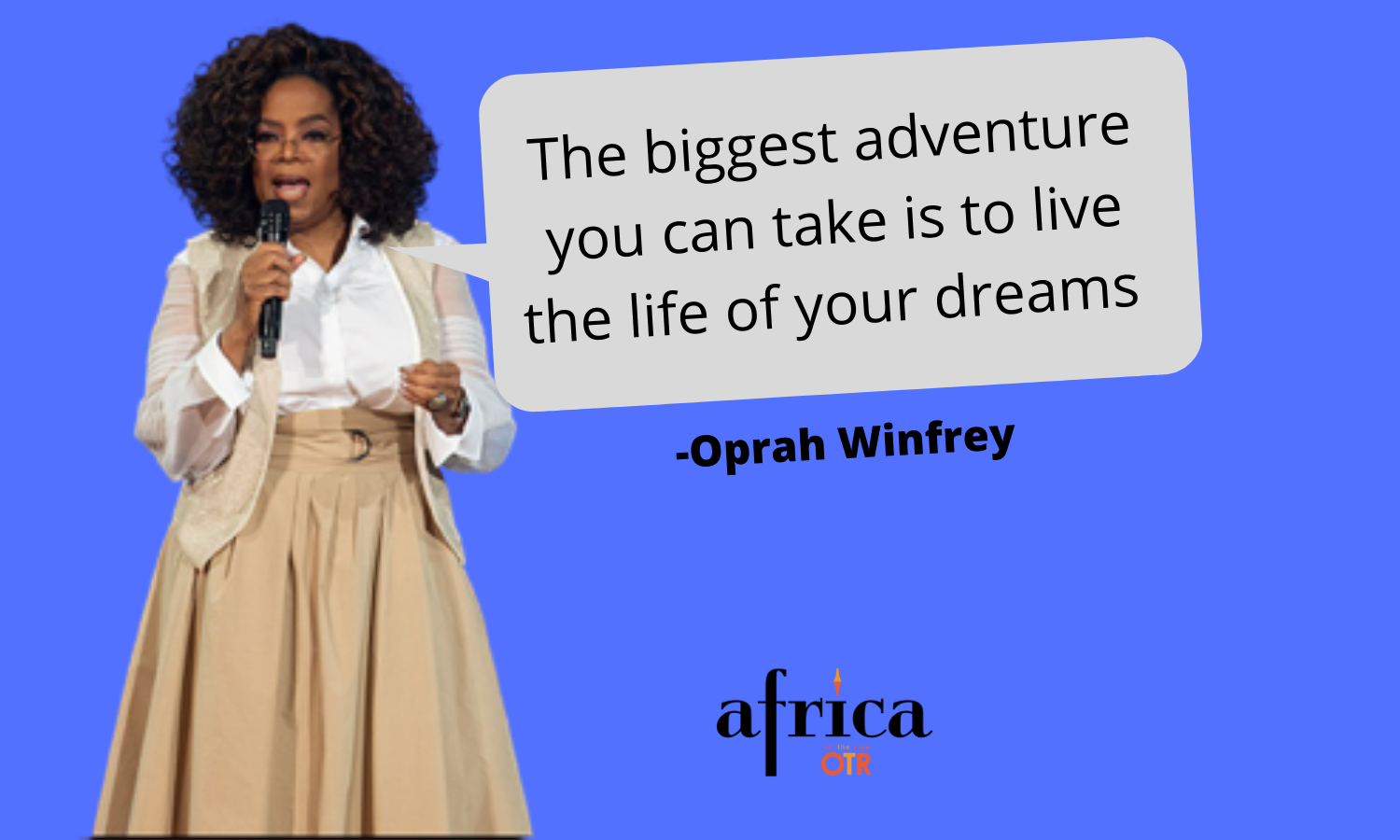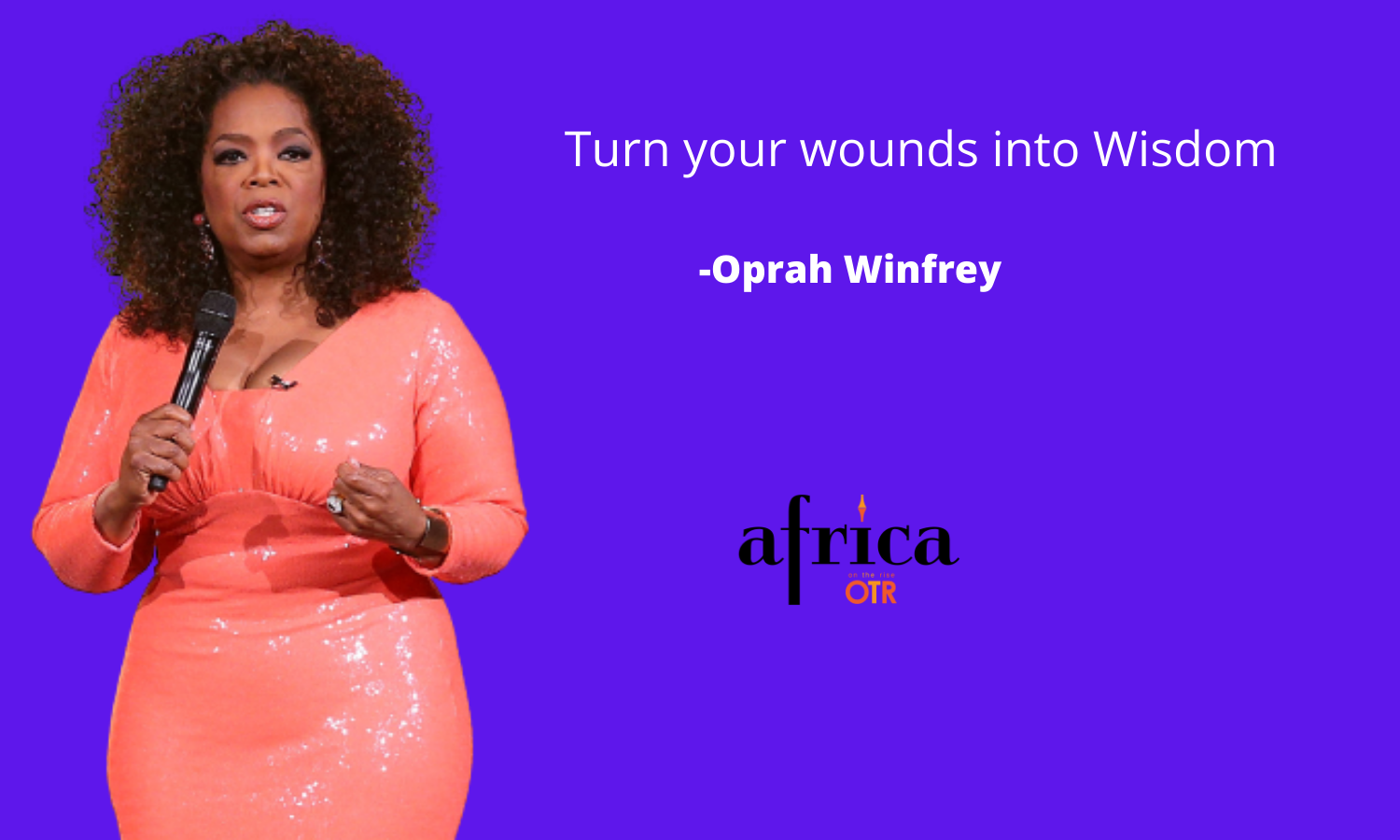If I compare a past Africa and the current 21st century Africa, I might say that our continent has made significant strides that we need to appreciate. Some time ago, females did not have the privilege of creating wealth and being independent today. The act of making money and becoming wealthy was only for males. During slavery and apartheid in South Africa, the situation was worse because the white people did not allow the black people to have property or do competitive businesses. However, the rise of Black Excellence changed history for the black race. Today, we will look at one of the black people, a black woman, who is the epitome of Black Excellence, Oprah Winfrey.

The Early Life of Oprah Winfrey
Oprah Winfrey was born in Kosciusko (Mississippi) to an unmarried teenage mum. Vernita Lee, her mother, was a housemaid. Oprah Winfrey’s biological father is notably Vernon Winfrey, a coal miner turned city councilman who had been in the Armed Forces when she came to existence. However, Noah Robinson, a Mississippi farmer and World War 2 veteran, has claimed to be Oprah’s biological father. A genetic test in 2006 verified that her matrilineal line came from the Kpelle tribe, in the region that today is Liberia. Specialists confirmed Oprah’s genetic composition to be more than 80% Sub-Saharan Africa, 8% Native American and less than 5% East Asian.
After Oprah’s birth, her mum traveled North, and Oprah Winfrey spent her 1st six years living in rural poverty with Hattie Mae Lee, her maternal grandma. Her grandma was so poor that Oprah Winfrey wore dresses made of potato sacks, for which other children made fun of Oprah. Her grandma taught her to read before she was three years old and took her to the local church, where people nicknamed her ‘The Preacher, for her unique ability to memorize and recite Bible verses. According to reports, when Winfrey was a child, her grandmother was abusive.
At the age of 6, Oprah moved to an inner-city neighborhood in Milwaukee with her mum, who was less encouraging and supportive than her grandma had been, mainly due to the long hours she worked as a housemaid. Around this time, Vernita Lee had given birth to another daughter, Winfrey’s younger half-sister called Patricia, who died of causes linked to cocaine addiction in February 2003 at 43 years. By 1962, Lee was having a challenge in raising both daughters, so Winfrey temporarily lived with Vernon in Nashville. While Oprah Winfrey was in Nashville, her mum gave birth to a 3rd daughter whom her mother put up for adoption in the hope of easing the financial strains. Her mother later named her also as Patricia. Oprah Winfrey did not know that she had a 2nd half-sister until 2010. By the time Oprah Winfrey moved back with Vernita Lee, her mum, Lee had given birth to Jeffrey, Winfrey’s half-brother, who died of AIDS-related causes in the late 20th century (1989).
Winfrey once stated that her cousin, uncle, and a family friend molested her, starting when she was at age 9, something she 1st said on a 1986 episode of her TV show concerning sexual abuse. When Oprah talked about family members’ alleged abuse at 24 years, they refused to trust her account.
Oprah also once said that she had chosen not to be a mother because her mother had not parented or mothered her well. At 13, after suffering years of abuse, Oprah ran away from home. A year later (at 14), she became pregnant, but her son died prematurely after birth. The family member who sold her son’s story to the National Enquirer in 1990 made Winfrey feel like someone betrayed her.

Oprah Winfrey attended Lincoln High School in Milwaukee, but after early success in the Upward Bound program, she went to Nicolet High School. Upon transferring, she said people continually reminded her of her poverty as she rode the bus to school with her fellow black Americans. Some of them were servants of her classmates’ families. She began to rebel and steal cash from her mum to keep up with her peers.
As a result, her mum once again sent her to live with her father, Vernon, in Nashville, although this time, she did not take her back. Vernon was strict, encouraging, and made Oprah’s education a priority. Oprah became an honors student and joined her high school speech team at East Nashville High School, placing 2nd in the nation in dramatic interpretation. She won an oratory contest, which secured her a scholarship to Tennessee State University, where she studied communication. Her 1st job as a teenager was working at a native or local grocery store.
At 17 years, Oprah won the Miss Black Tennessee beauty pageant. She attracted the native black radio station (WVOL), which hired her to do the news part-time. During her senior year of secondary school or high school and in her 1st two years of college, she worked there. Oprah’s career in media wouldn’t have surprised her grandma, who once said that she was on stage ever since Oprah could talk. As a youngster, she played games interviewing her doll and the crows on the fence of her family’s property. Oprah Winfrey later acknowledged her grandma’s influence, saying that Hatti Mae Lee had encouraged her to speak in public and gave her a positive sense of herself.
Oprah Winfrey’s Television Career
Working in local media, Oprah Winfrey was the youngest news anchor and the 1st black female news anchor at Nashville’s WTVF-TV, where she covered similar stories as John Tesh, who worked at a competing Nashville station. In 1976, she went to Baltimore’s WJZ-TV to co-anchor the 6 o’clock news. The next year, WJZ-TV’s people removed her as a co-anchor and worked in a lower profile position at the station. Later, she joined Richard Sher as co-host of WJZ’s local talk show, which premiered on August 14th, 1978. She also hosted the native or local version of Dialing for Dollars.
In 1983, Oprah Winfrey went to Chicago to host WLS-TV’s low-rated 30 minutes morning talk show, AM Chicago. The 1st episode aired on January 2nd, 1984. Within months after Oprah took over, the show went from the last position in the ratings to overtaking Donahue as the highest-rated talk show in Chicago. Roger Ebert persuaded her to sign a syndication deal with King World. Ebert foresaw that Oprah would generate forty times as much income as his television show (At the Movies). They later renamed the AM Chicago show as the Oprah Winfrey Show and expanded to a full hour.
They broadcasted the 1st episode nationwide on September 8th, 1986. Oprah’s syndicated show brought in double Donahue’s national audience, replacing Donahue as the number-1 daytime talk show in America.
In the Oprah Winfrey Show’s early years, they classified the program as a tabloid talk show. In the mid-1990s, Oprah started to host presentations on broader topics such as geopolitics, heart disease, meditation, and spirituality. She interviewed celebs or celebrities on social matters that revolved around them, such as charity work, cancer, or substance abuse, and hosted televised giveaways. In later years, people criticized Oprah Winfrey for allowing celebs to make pseudoscientific claims on her show, such as Jenny McCarthy’s unfounded assertions about vaccines and Suzanne Somers’s promotion of bioidenticals.

Besides her talk show, Oprah Winfrey also produced and co-starred in the 1989 drama miniseries called ‘The Women of Brewster Place’ and a short-lived spin-off, Brewster Place. Oprah co-founded the women’s cable television network, Oxygen, the 1st network for her Oprah After the Show program from 2002 to 2006 before changing to Oprah.com, Winfrey sold off her stake in the network. She is also the head of Harpo Productions. She also moderated 3 ABC Afterschool Specials for two years (from 1992 to 1994). On January 15th, 2008, Oprah and Discovery Communications announced plans to change Discovery Health Channel into a new channel known as Oprah Winfrey Network (OWN). They scheduled to launch it in 2009, but they delayed it. They officially launched it on January 1st, 2011. The series finale of The Oprah Winfrey Show aired on May 25th, 2011.
In 2017, CBS announced that Oprah would join 60 Minutes as a special contributor on the Sunday evening news magazine program beginning in September 2017. In 2018, the National Museum of African-American History and Culture opened an exhibit on Winfrey’s cultural influence via television. Oprah Winfrey left 60 Minutes by the end of 2018. In June the same year, Apple announced a multi-year content partnership with Oprah Winfrey, in which Winfrey would create new original programs for Apple TV+, Apple’s streaming service. The 1st show under the deal, Oprah’s Book Club, premiered on November 1st, 2019. The 2nd show under the agreement, Oprah Talks COVID-19, debuted on March 21st, 2020, during the COVID-19 pandemic. A 3rd show, The Oprah Conversation, is to debut on July 30th, 2020 and will see Oprah continue to explore relevant and impactful topics with great-thought leaders from all over the globe.
Oprah’s Food Business
In 2015, Oprah Winfrey bought a minority stake in the publicly-traded company Weight Watchers for a reported 34 million USD. By last year (2020), those shares’ value had significantly increased to over $400 million. She is also an investor in True Food Kitchen, a restaurant chain that author Andrew Weil founded.
MORE:












